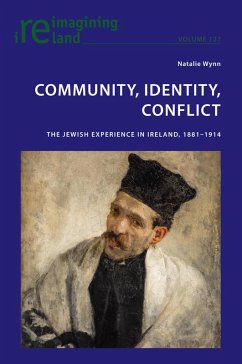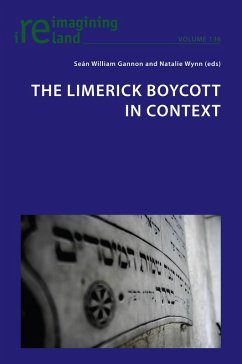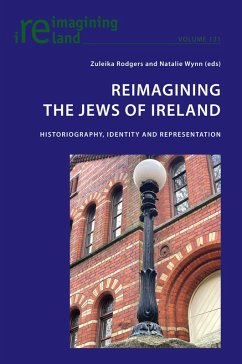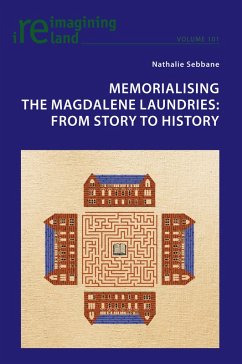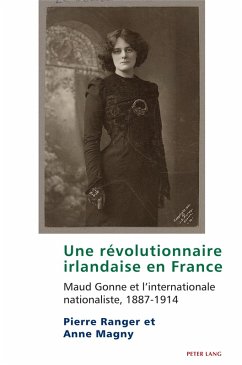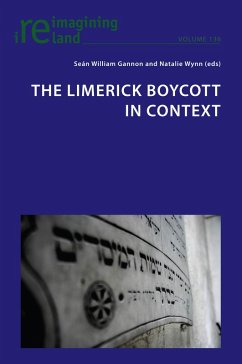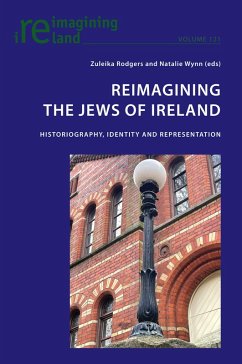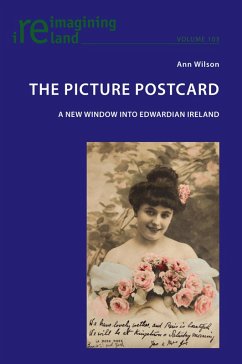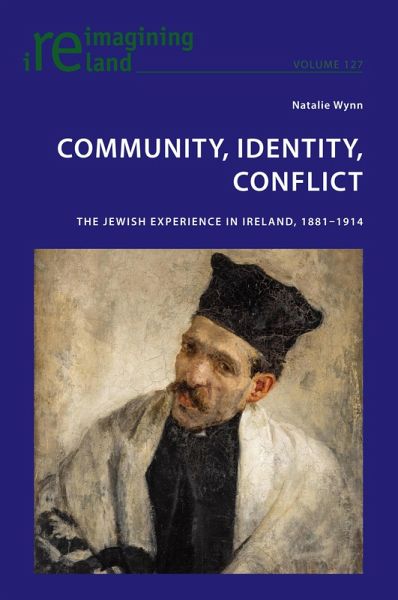
Community, Identity, Conflict (eBook, PDF)
The Jewish Experience in Ireland, 1881-1914
Versandkostenfrei!
Sofort per Download lieferbar
Statt: 52,95 €**
45,95 €
inkl. MwSt.
**Preis der gedruckten Ausgabe (Broschiertes Buch)
Alle Infos zum eBook verschenkenWeitere Ausgaben:

PAYBACK Punkte
23 °P sammeln!
«Natalie Wynn has written a definitive account of Irish Jewish history in the period of mass migration at the turn of the twentieth century. She unravels the myths-such as accidental arrival from eastern Europe, or untroubled social mobility as a model minority-which have hitherto characterized Irish Jews. Community, Identity, Conflict moves from detailed studies of local communities (Belfast, Dublin, Cork, Limerick) to the metropolitan and colonial contexts of minority formation. As Dr Wynn adeptly shows, the everyday ambivalence towards minorities in Irish culture is a centuries-old history...
«Natalie Wynn has written a definitive account of Irish Jewish history in the period of mass migration at the turn of the twentieth century. She unravels the myths-such as accidental arrival from eastern Europe, or untroubled social mobility as a model minority-which have hitherto characterized Irish Jews. Community, Identity, Conflict moves from detailed studies of local communities (Belfast, Dublin, Cork, Limerick) to the metropolitan and colonial contexts of minority formation. As Dr Wynn adeptly shows, the everyday ambivalence towards minorities in Irish culture is a centuries-old history which is still present today. Her meticulous and compelling study will be of value to Irish studies, Jewish studies, and anyone interested in the life experience of refugees.»
(Bryan Cheyette, Emeritus Professor, University of Reading, and author of The Ghetto: A Very Short Introduction (2020))
«Natalie Wynn has produced an outstanding contribution to the relevant literature. It dismantles established myths and opens up the field of Irish Jewish studies with a fresh, innovative interpretation, which sets new standards in scholarship.»
(Eugenio Biagini, Professor of Modern and Contemporary History, University of Cambridge)
As a small community located on the peripheries of Europe and of the Jewish world, Ireland's Jewish community is something of an outlier and is often portrayed as having a unique history or being quaint or quirky in character. This book challenges this narrative by contextualizing Irish Jewry as a community that has been defined by the experience and mythology of Jewish mass migration. This book charts the history of Ireland's Jewish community at a time of rapid growth and cultural, political and social transition, from British rule to Irish independence, exploring the relationship between Jews, Irish society and Irish Jewish communal tradition. Key themes include arrival and settlement; the dynamics between «native» and immigrant Jews; acculturation and hybridity; intracommunal conflict; gender; and Jewish/non-Jewish relations.
(Bryan Cheyette, Emeritus Professor, University of Reading, and author of The Ghetto: A Very Short Introduction (2020))
«Natalie Wynn has produced an outstanding contribution to the relevant literature. It dismantles established myths and opens up the field of Irish Jewish studies with a fresh, innovative interpretation, which sets new standards in scholarship.»
(Eugenio Biagini, Professor of Modern and Contemporary History, University of Cambridge)
As a small community located on the peripheries of Europe and of the Jewish world, Ireland's Jewish community is something of an outlier and is often portrayed as having a unique history or being quaint or quirky in character. This book challenges this narrative by contextualizing Irish Jewry as a community that has been defined by the experience and mythology of Jewish mass migration. This book charts the history of Ireland's Jewish community at a time of rapid growth and cultural, political and social transition, from British rule to Irish independence, exploring the relationship between Jews, Irish society and Irish Jewish communal tradition. Key themes include arrival and settlement; the dynamics between «native» and immigrant Jews; acculturation and hybridity; intracommunal conflict; gender; and Jewish/non-Jewish relations.
Dieser Download kann aus rechtlichen Gründen nur mit Rechnungsadresse in A, D ausgeliefert werden.




